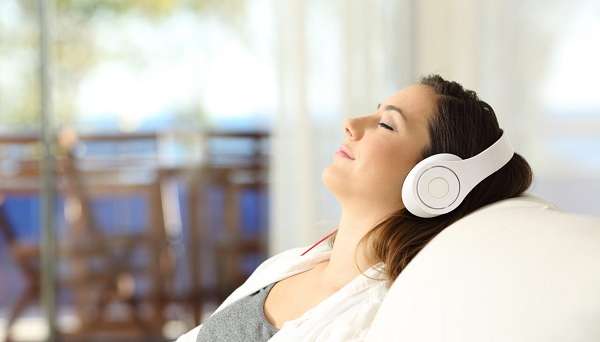In today’s fast-paced world, it’s more important than ever to find ways to relax your mind and body. Stress can take a toll on our physical and mental health, and it can make it difficult to cope with everyday challenges.

There are many different ways to relax your mind. Some people find that yoga, meditation, or spending time in nature are helpful. Others prefer to listen to music, read a book, or take a warm bath. There is no one right way to relax, so it’s important to find what works best for you.
Benefits of Relaxation
There are many benefits to relaxation. When you relax, your body releases endorphins, which have mood-boosting effects. Relaxation can also help to reduce stress, improve sleep, and boost your immune system.
In addition, relaxation can help you to:
- Improve your focus and concentration
- Enhance your creativity
- Increase your productivity
- Improve your relationships
- Reduce your risk of chronic diseases
- Live a longer, healthier life
Techniques for Relaxation
There are many different techniques that you can use to relax your mind. Some of the most popular techniques include:
Yoga
Yoga is a mind and body practice with a 5,000-year history in ancient Indian philosophy. Various styles of yoga combine physical postures, breathing exercises, and meditation or relaxation.
Meditation
Meditation is a practice where an individual uses a technique — such as mindfulness, or focusing the mind on a particular object, thought, or activity — to train attention and awareness, and achieve a mentally clear and emotionally calm and stable state.
Deep breathing
Deep breathing is a type of breathing that involves taking long, slow, deep breaths. It is a simple technique that can be used to relax the body and mind.
Progressive muscle relaxation
Progressive muscle relaxation (PMR) is a technique for reducing stress and muscle tension. It involves tensing and relaxing different muscle groups in the body.
Visualization
Visualization is a technique that involves creating a mental image of something that you want to achieve. It can be used to help you relax, improve your mood, and achieve your goals.
Aromatherapy
Aromatherapy is a form of alternative medicine that uses essential oils extracted from plants to promote health and healing. The oils are inhaled, massaged into the skin, or added to bathwater.
Massage
Massage is a type of bodywork that involves applying pressure to the muscles and soft tissues of the body. It is often used to relieve pain, improve circulation, and promote relaxation.
Spend time in nature
Spending time in nature has been shown to have a number of benefits for mental and physical health. It can help to reduce stress, improve mood, and boost your immune system.
Listen to music
Listening to music can be a great way to relax and de-stress. It can help to lower blood pressure, heart rate, and muscle tension.
Read a book
Reading a book can be a great way to escape from the stresses of everyday life and relax your mind. It can also help to improve your sleep quality.
Take a warm bath
Taking a warm bath is a great way to relax your muscles and soothe your mind. It can also help to improve your sleep quality.
How to Choose the Right Technique
There is no one right technique for relaxation. The best way to choose a technique is to experiment and find what works best for you. Some factors to consider when choosing a technique include:
Your personal preferences
Some people prefer active relaxation techniques, such as yoga or exercise, while others prefer passive relaxation techniques, such as meditation or listening to music. It’s important to choose a technique that you enjoy and that you’re likely to stick with.
Your lifestyle
If you have a busy lifestyle, you may not have time for a long, drawn-out relaxation session. In this case, you may want to choose a technique that you can do quickly and easily, such as deep breathing or taking a short walk.
Your current level of stress
If you’re feeling particularly stressed, you may want to choose a relaxation technique that is more intense, such as meditation or yoga. If you’re not feeling as stressed, you may want to choose a more gentle technique, such as listening to music or reading a book.
Your budget
Some relaxation techniques, such as massage or aromatherapy, can be expensive. If you’re on a budget, you may want to choose a technique that is free or low-cost, such as deep breathing or spending time in nature.
If you’re not sure where to start, you can talk to your doctor or a therapist. They can help you to choose a technique that is right for you.
How to Make Relaxation a Habit
The key to making relaxation a habit is to make it a part of your daily routine. Schedule some time for relaxation each day, even if it’s just for a few minutes. You can also try to relax before bed or during your lunch break.
Here are some tips for making relaxation a habit:
- Find a quiet place where you won’t be disturbed.
- Turn off your phone and other electronic devices.
- Focus on your breathing and let go of any thoughts that come into your mind.
- If your mind wanders, gently bring it back to your breath.
- End your relaxation session by taking a few deep breaths and stretching.
Conclusion
Relaxation is an important part of a healthy lifestyle. It can help to reduce stress, improve your mood, and boost your overall well-being. There are many different techniques that you can use to relax your mind. Experiment until you find what works best for you. And don’t forget to make relaxation a part of your daily routine.
